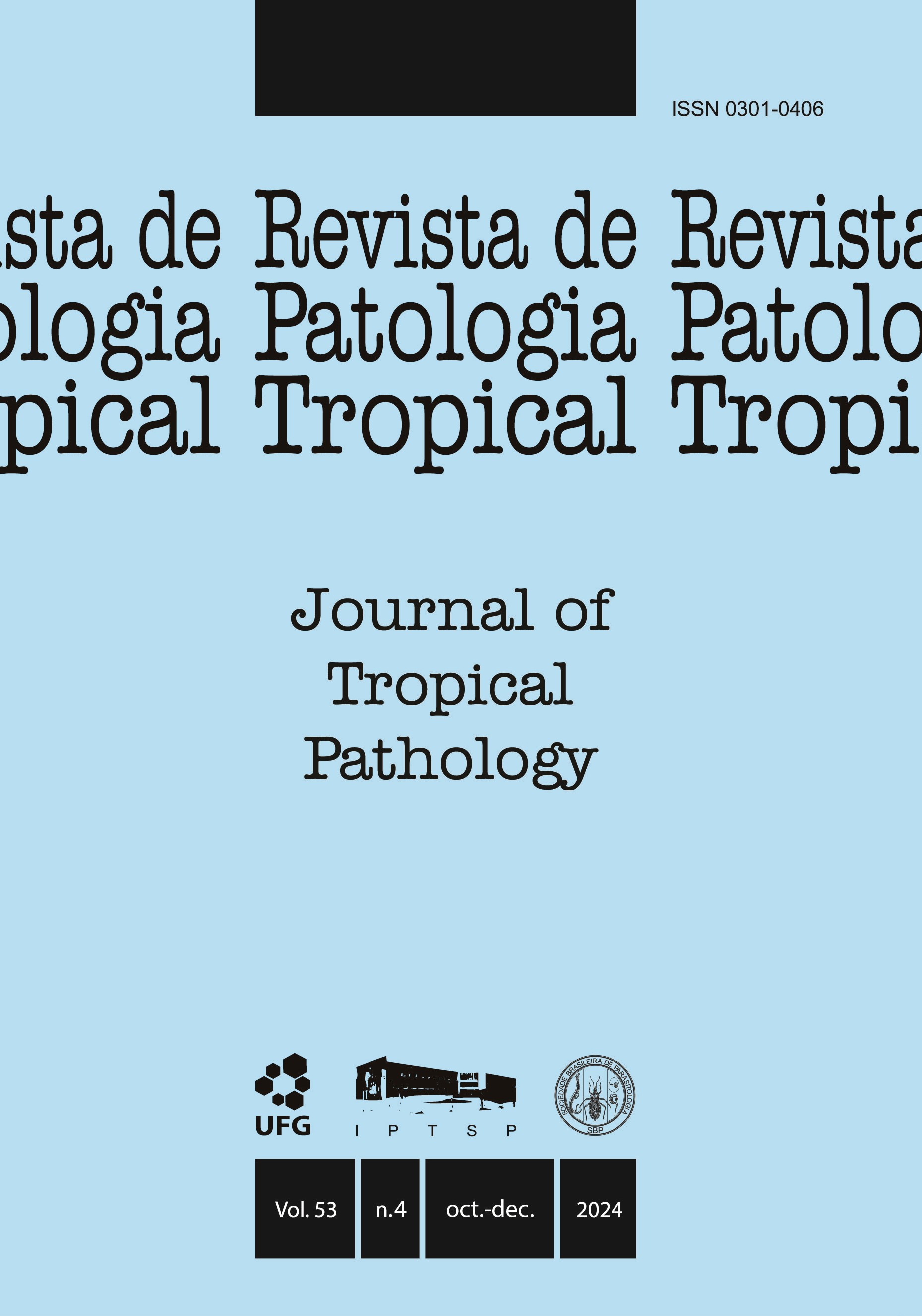Microbiological quality of sugarcane juice sold in Goiânia/GO and risks to public health
DOI:
https://doi.org/10.5216/rpt.v53i4.80867Resumo
Sugarcane juice has a pleasant flavor, is easy to process, and is well accepted by the general population. However, microbiological quality is not always assured, which can result in risks for consumption. The objective of this study was to evaluate the microbiological quality of sugarcane juice obtained from commercial establishments in the city of Goiânia. Sugarcane juice samples were collected from 21 locations between February and July 2018. The analysis was performed using the multiple tube technique, and quantification by the most probable number (MPN) of microorganisms present in each sample. The microbiological analysis investigated total and thermotolerant coliforms, in addition to Salmonella, as recommended by current legislation. Total coliforms were found in 100% of the samples, with a count >1600 MPN/mL in 57.14%. For thermotolerant coliforms, 100% of the samples were positive, with 33.33% being above the legal limit and 19.05% being positive for Escherichia coli. Among the 21 samples evaluated, one was positive for Salmonella ser. Typhimurium. The quantity and quality of microorganisms isolated in the samples of sugarcane juice sold in the city of Goiânia indicate the need to improve the hygienic and sanitary quality of the establishments. There is an urgent need to establish training courses for traders in this sector, to provide guidance on the correct way to process, store, and transport food and raw materials, which will guarantee the quality of the food and protect the health of the consumers.
KEY WORDS: Most probable number; multiple tubes; coliforms; Salmonella.
Downloads
Downloads
Publicado
Como Citar
Edição
Seção
Licença
The manuscript submission must be accompanied by a letter signed by all authors stating their full name and email address, confirming that the manuscript or part of it has not been published or is under consideration for publication elsewhere, and agreeing to transfer copyright in all media and formats for Journal of Tropical Pathology.

